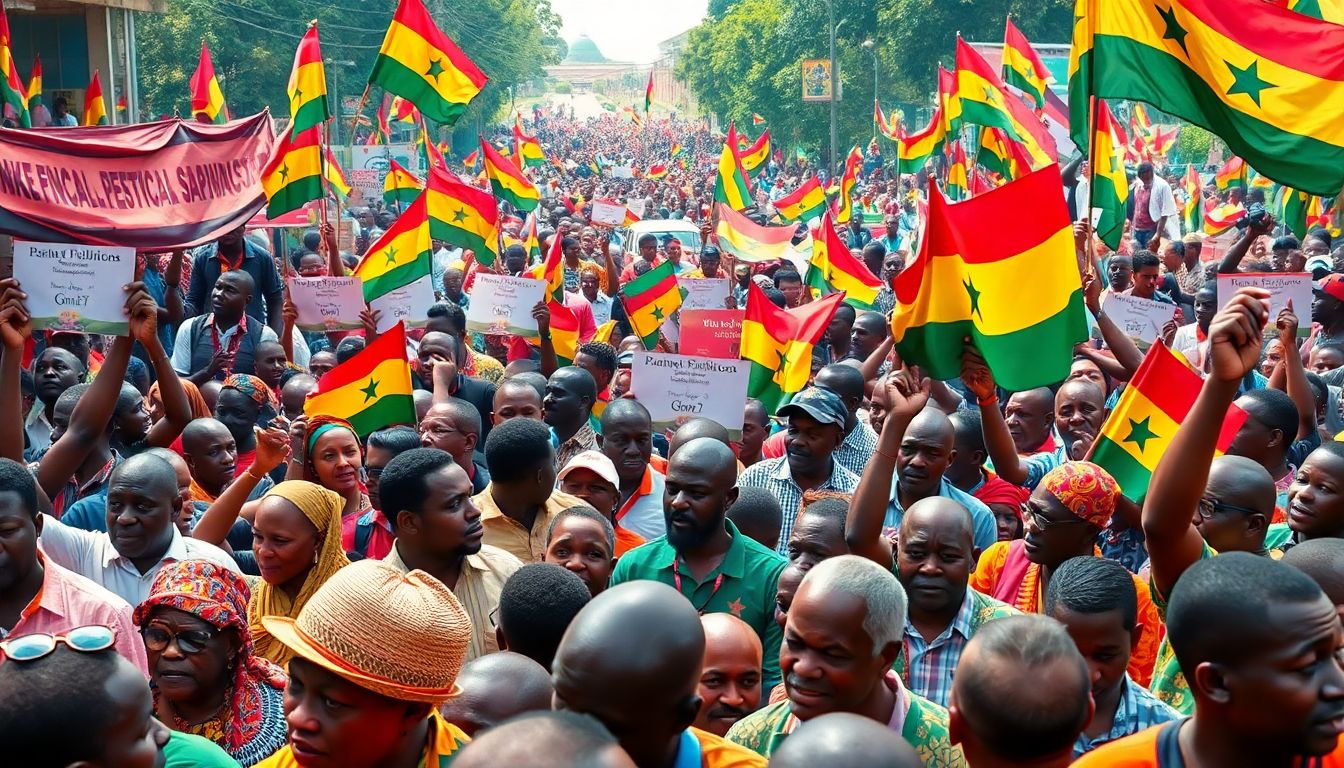Ghana recently held its presidential elections, revealing a competitive spirit among the main political parties. The National Democratic Congress (NDC) and the New Patriotic Party (NPP) battled fiercely, drawing attention from citizens and international observers alike. Ghana’s vibrant political scene is not only captivating but also crucial to understanding its governance.
Ghana’s political system is characterized by a stable democracy, a presidential framework, and a multi-party system. This unique blend shapes the country’s governance and enhances citizen participation. The purpose of this article is to provide an extensive overview of Ghana’s political landscape, examining its historical context, structure, major parties, local governance, challenges, and future prospects.
Historical Context: From Colonial Rule to Independence
Pre-Independence Politics
Before gaining independence in 1957, Ghana, then known as the Gold Coast, experienced colonial rule under the British. Political activity was largely suppressed, and the local population had limited control over governance. Nationalist movements began to emerge in the early 20th century as Ghanaians sought self-determination and rights.
The Road to Independence
Key figures like Kwame Nkrumah played pivotal roles in the fight for independence. The formation of political organizations, such as the Convention People’s Party (CPP), sparked a push for greater representation. After years of agitation and negotiations, Ghana became the first sub-Saharan African country to achieve independence on March 6, 1957.
Post-Independence Developments
Following independence, Ghana’s political environment faced challenges. Nkrumah’s government turned authoritarian, leading to political unrest. A series of military coups throughout the late 20th century disrupted governance. The return to democracy in the 1990s marked a significant milestone, establishing a competitive political landscape that still exists today.
The Presidential System: Structure and Powers
Executive Branch
Ghana operates under a presidential system, where the President serves as both head of state and government. The President oversees the executive branch and appoints a cabinet to assist in governance. Presidential terms last four years, with the possibility of re-election for one additional term.
Legislative Branch
Parliament, Ghana’s legislative body, consists of 275 seats filled through general elections. Members of Parliament (MPs) serve four-year terms. A recent parliamentary debate focused on the proposed budget, highlighting the diverse opinions represented in this essential legislative process.
Judicial Branch
The judiciary plays a critical role in maintaining the rule of law. The Supreme Court is the highest court, with the authority to interpret laws and safeguard constitutional rights. A prominent legal scholar stated, “The independence of the judiciary is the backbone of democracy,” emphasizing its vital function in Ghana’s governance.
Multi-Party System and Political Parties
Dominant Parties
The political scene in Ghana is largely dominated by two major parties: the NPP and the NDC. The NPP tends to lean towards center-right policies, focusing on economic liberalization and entrepreneurship. In contrast, the NDC embraces a center-left ideology, prioritizing social justice and welfare programs. In recent elections, the NPP captured about 51% of the votes, while the NDC secured approximately 47%.
Minor Parties
While they are less prominent, minor parties like the Convention People’s Party (CPP) and the Ghana Union Movement (GUM) contribute to the political diversity in Ghana. These parties often highlight specific issues, offering alternatives to the dominant parties.
Electoral Process
Ghana employs a secret ballot system for elections. Citizens can register online or at designated centers, ensuring a transparent voting process. The electoral commission oversees the entire procedure, including voter education initiatives.
Decentralization and Local Governance
Structure of Local Government
Ghana’s local government operates on multiple levels, including regional, district, and municipal authorities. Each level possesses specific powers, such as tax collection and local development initiatives. One successful initiative includes local health programs that address community needs.
Challenges of Decentralization
Despite its advantages, decentralization faces challenges, such as inadequate resource allocation and limited capacity building. Many local authorities struggle to implement projects effectively, hampering development efforts.
Citizen Participation
Ghana encourages citizen involvement in local governance through town hall meetings, local councils, and community forums. These platforms enable residents to voice concerns and influence decisions affecting their communities.
Challenges and Future Prospects of Ghanaian Politics
Corruption
Corruption remains a significant concern in Ghana’s political system. The country ranks moderately on the Corruption Perceptions Index, raising alarms about governance integrity. Addressing corruption is essential for strengthening public trust and enhancing government performance.
Political Stability
Ghana is often hailed as a beacon of political stability in West Africa. However, tensions may arise from electoral disputes or social unrest. A political analyst recently noted, “Vigilance is necessary to maintain the peace that Ghana has worked hard to establish.”
Economic Development and Politics
Political stability is intricately linked to economic growth in Ghana. A stable political environment fosters investment and enhances international relations, which can lead to economic prosperity. Conversely, political instability can deter progress and affect livelihoods.
Actionable Tips
Citizens can engage in Ghana’s political process by:
- Attending community meetings and local elections
- Joining or supporting civil society organizations
- Staying informed through credible news sources
- Encouraging discussions about political issues among peers
Conclusion
Ghana’s political system is defined by its rich history, robust democracy, and citizen participation. Key takeaways include the importance of a multi-party system, the roles of various branches of government, and the ongoing challenges of corruption and decentralization.
Looking ahead, Ghana’s political landscape is poised for continued evolution, driven by citizen engagement and institutional improvements. It is vital for citizens to stay active and informed about their governance.
Explore more about Ghanaian politics, participate in the discussions, and champion democratic values for a brighter future.

AdHang is a political campaign agency with 15 years plus in the Industry.
Want to lead the polls? Hire AdHang for your campaign needs. We’ll help you connect and succeed. Don’t wait, reach out now!
